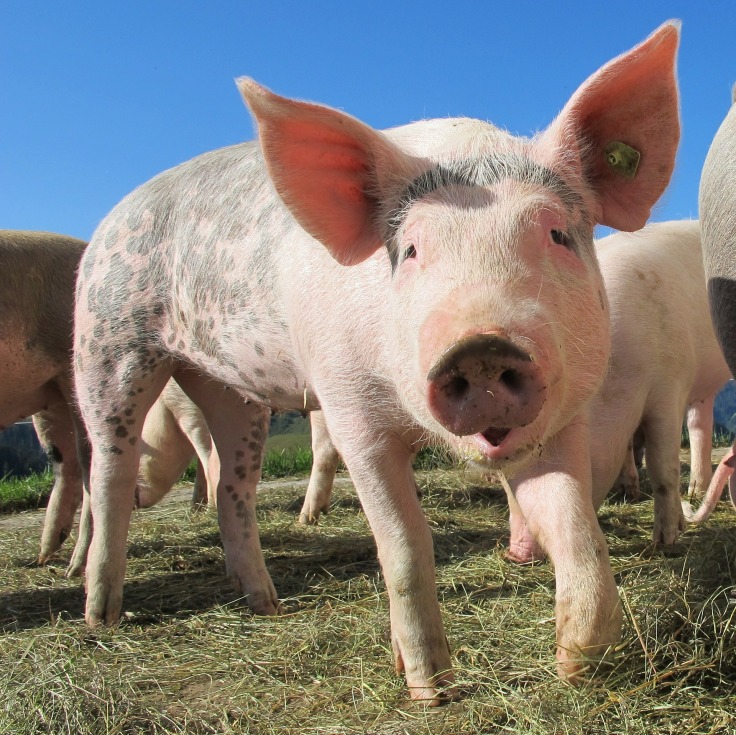
I just read some interesting dialogue that prompted me to do some philosophical reflection on the nature of language generally and name calling specifically.
Part 1: X is a pig: the multiple meanings of terms
Consider the following statements:
i. Mary is a “pig”.
ii. Tom is a “pig”.
iii. Wilbur is a “pig”.
iv. Bill is a “pig”.
v. Ted is a “pig”.
First, it is interesting to note that while any of the statements (i.-v.) could be either true or false i.e. Ted or Bill could be the name of a particular pig all of them have contextual meaning. In other words, consider (i.) Mary is a pig. What makes Mary a pig? Perhaps Mary eats ice cream by the gallon, washes it down with cases of Mountain Dew and in between quaffing the ice cream and yellow nectar snacks on deep fried Twinkies. Mary is not really a pig, but is gluttonous in her eating making her dining habits pig-like.
Next we must examine Tom. Tom is also a “pig”. However, Tom only eats vegetables, works out five times a week, and has regularly participated in marathons. Tom is slender and athletic, hardly pig-like in the Marian sense of pig-likeness. However, Tom arises early for work, dons his blue uniform and takes his place behind the wheel of his police cruiser. Thus, Tom’s pig-likeness has nothing to do with his eating habits. In fact, his pig-likeness is only observable at certain times while Mary seems to be stuck in a perpetual albeit different form of pig-likeness.
For the sake of argument, let’s say that Wilbur is a actually a pig, that lives in a barn inhabited by a gluttonous rat named Templeton along with an over-achieving artsy spider. When someone says “that’s some pig” the implication is that Wilbur is either a pig or not a pig thus there is a truth condition present. Such a statement is either true or false.
Bill is neither overweight and overindulgent and for Pete’s sake he works as a software engineer. He is not pig-like in the same sense as Mary nor as Tom. However, Bill as a self-styled Don Juan is pig-like in another sense. He is a pig because of the way he treats his dates. He neither returns calls nor opens doors. His pig-likeness is connected with his actions relative to a very small set of propositions related to his interactions with women.
Ted is also a pig. However, he is by nature the antithesis of Bill. There is considerable ease and politeness in his constitution. He is an airline pilot so he is not pig-like in his employment either. Ted may well be the most pig-like in his living conditions though as he never picks up after himself and very rarely if ever does his dishes.
Part 2: Name calling as pejorative of a specific class of people
As a thought experiment let’s imagine that the term pig is a term that has been historically applied to overweight people. Overweight people have been called various names all of which refer to their weight. Any number of pejorative terms could be listed but for the sake of charity I will spare you an exhaustive list.
It should be apparent that in our list above, only one such example exists where the pejorative term can be applied to a particular person. Sadly, our ice cream guzzling bingo-winged Mary is the “pig”. This means that the term “pig” refers not to some other instantiation of pig-likeness (ii.-v) but to her weight.
Contrariwise, it should be noted that while all of the others are also pigs, they are not pigs in the hefty sense but in a quality of pig-likeness that is not indicative of their scale tipping girth. By way of logical analysis, this means that the term “pig” has a meaning unique to the usage and context in which it is applied. When the term “pig” is applied to Mary it has a fixed referent i.e. her enormous size and infinite capacity for quaffing sweets. The term is applied differently to Tom, Bill, Ted, and of course Wilbur though none of them are called “pig” in the same sense.
Postscript:
All of this is to say that even though name calling may not be “polite” assigning meaning is not a trivial affair. Most if not all of the examples exhibit something called intentionality. Intentionality has to do with the beliefs or thoughts that are directed toward some object. Even though the term is the same throughout, one must examine the intentionality of the statement in order to assign meaning. Assigning a fixed meaning categorically to the term “pig” an assuming a univocal meaning is simply not how the English language works.
Leave a comment